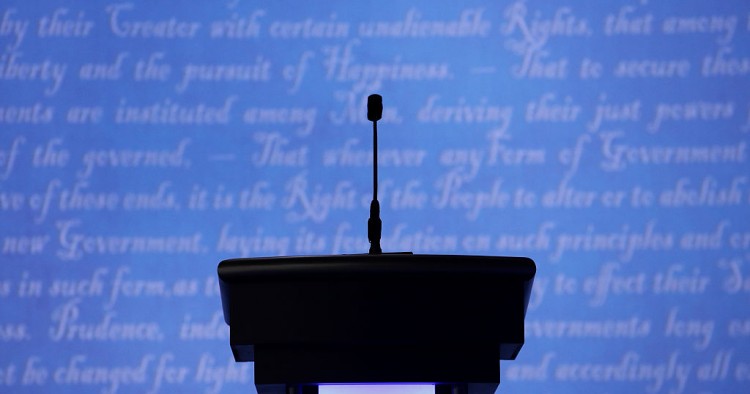The first debates between the 2020 Democratic presidential candidates will begin on Wednesday, June 26th. The New York Times produced a list of 18 overall questions for the candidates, while The Washington Post’s Jennifer Rubin prepared a list of questions on foreign policy. Below, MEI presents 10 questions for the candidates focused on U.S. policy in the Middle East.
-
What are the core interests of the U.S. in the Middle East, and how much, or how little, should it be involved in the region?
-
Presidents Obama and Trump have tried different approaches to the Middle East. How would your overall policy to the region differ?
-
Hostility between Iran and the U.S. has endured for the past 40 years and now risks breaking out into war. What would you do differently to address or resolve this conflict?
-
With regard to the Israel-Palestine conflict, neither a two-state solution nor a one-state solution seems possible any longer. How serious is this impasse, and what would you do to find a path forward toward peace?
-
The war on terror has recently achieved important victories over ISIS in Iraq and Syria, but the group and others like it still present a major risk. How would you address the long-term threat of terrorism emanating from the region?
-
The war in Afghanistan is approaching its 20th year. Military victory or a negotiated end have eluded past presidents. What would you do differently to bring the war in Afghanistan to an end?
-
In Syria, the Assad regime is prevailing by brute force with support from Iran and Russia, and the U.S. appears to be on the way out. How do you assess the situation there, and what would your administration’s Syria policy be?
-
Yemen is one of the world’s worst humanitarian crises. It is a complex civil war made much worse by the intervention of regional powers, including Saudi Arabia, the UAE, and Iran. How important would ending the war be for your administration, and what would your Yemen policy be?
-
The U.S.-Turkish relationship is at its lowest point in decades. How important is this relationship, and what would you do to rebuild it?
-
Arab populations have risen up, both in 2011 and more recently in Sudan and Algeria, for an end to dictatorship and the establishment of representative and accountable government. What would your administration do to support human rights and democratic values?
Photo by Drew Angerer/Getty Images
The Middle East Institute (MEI) is an independent, non-partisan, non-for-profit, educational organization. It does not engage in advocacy and its scholars’ opinions are their own. MEI welcomes financial donations, but retains sole editorial control over its work and its publications reflect only the authors’ views. For a listing of MEI donors, please click here.













